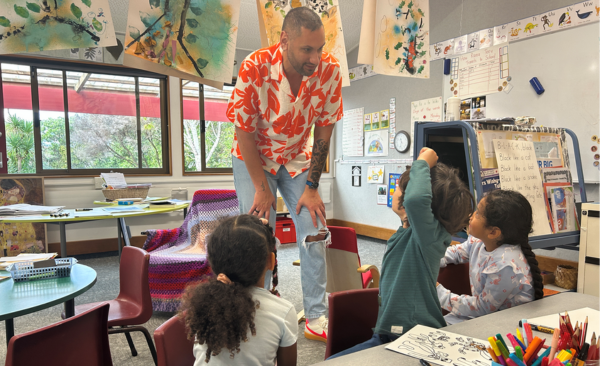ERO looked at how new principals are doing in their first five years in the role. We found that new principals are not always well prepared, and many are not confident about their new range of responsibilities. School boards can make a big difference in setting new principals up for success.
This guide is for school boards in Aotearoa New Zealand. This guide gives our ‘big picture’ findings on new principals’ preparedness and confidence, and gives guidance for school boards about supporting a new principal.
What did we find out?
Pathways to becoming principal
- New principals are not always well prepared for all aspects of their new role.
- Prior experience in a leadership role is the best pathway.
- Not all teachers who have the potential to be principals are aware of the best pathway.
Development and support for aspiring principals
- Development and support helps aspiring principals prepare.
- Coaching and mentoring, and postgraduate programmes make the most difference.
Support for new principals once in the role
- Not all new principals have an induction when they start, and some inductions aren’t very useful.
- Principals’ confidence increases over their time in the role, but there remain some areas where they lack confidence.
- Connecting with peers and more experienced principals and coaches is most useful for new principals.
- School boards are not always aware of how well their new principals are doing.
Small schools
- Four in 10 new principals are in small schools, but those who start in small schools are less prepared, less likely to have had prior leadership experience, and have accessed less development and support.
- Once in the role, they are less confident, and can face barriers accessing the most effective development and support, and report poorer wellbeing.
Tumuaki Māori – Māori principals
- New tumuaki Māori feel less prepared and are less likely to have had the opportunity to have prior leadership experience.
- Once in the role, new tumuaki Māori are more confident than their peers.
How could your board support your new principal?
- Provide your new principal with a good quality induction. ERO found that while inductions can be valuable, they are not always happening, and are not always useful.
Good inductions for new principals:
- are carefully planned out – you can work with NZSTA about what this looks like
- are a team effort –to add value, include board members, school staff, community, iwi and hapu, and support agencies like the Ministry of Education and principals’ unions
- take time – start with visits, calls, and emails long before your new principal starts
- involve the outgoing principal where possible – so that the new principal can get up to speed on how things work in this school. You can work with the outgoing principal to pass key information about the school’s projects, plans, finances, administration, staff etc. on to the new principal
- help the principal to get to know the school community – the more the new principal has a chance to get to know your school’s learners, whānau, and wider community, the better.
- Develop and maintain a positive relationship with your new principal, based on support and professional respect. ERO found out that board members are not always aware when their principal needs help with parts of their job, or when they have poor wellbeing.
Good relationships with new principals:
- mean being proactive about communicating with your principal – positive principal-board relationships make a big difference to how well the school runs
- include providing development and support opportunities to settle them into their role. Coaching, mentoring, and opportunities to connect with other principals are especially useful. Talk to your new principal and NZSTA about how to work together to access the help they need
- include checking in regularly about their wellbeing, confidence, and challenges in the role – and working together to solve problems.
If you’d like to know more, check out these links



